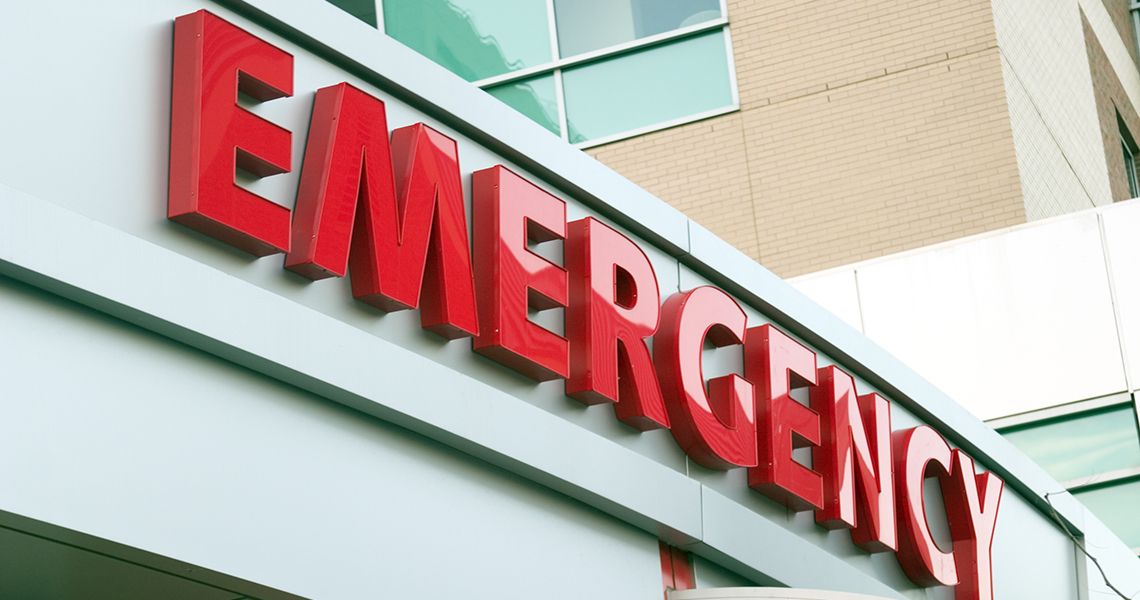
Disaster Medicine is the area of medical specialization serving the dual areas of (1) providing health care to disaster survivors and (2) providing medically related disaster preparation, disaster planning, disaster response and disaster recovery leadership throughout the disaster life cycle.
Program Objectives
- Demonstrate the ability to implement the incident command system.
- Describe characteristics of injuries from natural and man-made disasters including injuries due to CBRNE (chemical, biological, radiologic, nuclear or explosive) events.
- Contrast the roles and responsibilities of federal, state, and local disaster response agencies.
- Plan and propose a systematic response to a hypothetical mass casualty incident using principles of mass triage, surge capacity, incident command and multi-agency coordination.
- Evaluate current healthcare system vulnerabilities and corresponding mitigation efforts
- Define operational medicine and describe the unique aspects of its various subtypes/subspecialties, including wilderness, tactical, event, EMS, aviation/shipboard, and executive protective medicine.
Meet Your Disaster Medicine Directors
Program Activities
Required First Year Activities
- Attend the Disaster Medicine lecture/workshop series
- Students are expected to attend all the lecture/workshop series, but may miss one per academic year.
- Scholarly Concentration Directors may accept attendance at other disaster medicine-related lectures for lecture/workshop credit on a case-by-case basis.
Participate in an Experiential Opportunity/Internship in the Summer following first year of at least eight-week duration/ JUNIOR SCHOLARLY PROJECT
- Develop a research manuscript and/or participate in an intensive experiential opportunity during the summer following the first year of medical school.
- First, review the options below and proactively seek out possible experiential opportunities or research topics. Start as early as possible, as some companies and agencies begin recruiting for summer positions as early as the previous fall. The SC Directors can’t do this part for you, although we’re happy to help in whatever way possible. As we hear about opportunities, we will pass them on to the Disaster SC students.
- Second, after you have a proposed project, reach out to one of the Scholarly Concentration Directors to refine and approve your scholarly project proposal. We are seeking experiences that are substantial and meaningful, and which will give you significant exposure to one or more of the aspects of our field.
Below are options that students could consider:
A. RESEARCH MANUSCRIPT (2 options)
i. Original Research: In partnership with a faculty mentor, perform research on a disaster medicine topic or event, including a detailed literature review. This may be an original study of basic, clinical, quantitative (including epidemiologic and population-based), or qualitative investigation in areas related to disaster medicine. The product should be either a formal and thorough written research paper (in the format of an academic journal article) for completed projects, or a white paper for projects that are still in progress.
ii. Review Article: Perform an extensive review of the literature on a narrow disaster-related topic, issue, or event occurring in the previous 10 years. References must include, but need not be limited to, the previous 10 years of academic literature. You may refer to Literature Reviews: An Overview for Graduate Students by North Carolina State University Libraries. (https://www.youtube.com/watch?time_continue=578&v=t2d7y_r65HU&feature=emb_title).
Refer to the lecture topic list for 1st and 2nd years and to Ciottone’s Disaster Medicine textbook for ideas for your paper.
The goal for your review article is to have a manuscript that can be considered for poster presentation and/or publication in a peer-reviewed journal. You should work with an academic mentor as a co-author and the Himmelfarb librarian for literature review help.
B. EXPERIENTIAL
i. Students may elect for a hands-on, experiential/internship opportunity that relates to the concepts or delivery of disaster medicine. Students must submit a proposal including scope of work, timeline, objectives/goals, responsibilities, and the organization/mentor with whom the student will be working. Please include contact information for the mentor responsible. Finding the right internship can be hard work and take time - so early and think broadly about what positions are involved in disaster medicine, even if they aren’t listed as disaster medicine internships. Internships may be paid or uncompensated.
ii. Experiential Opportunities Summer Internships/Senior Elective Host Sites (examples)
▪ DC Emergency Management Agency (or the EMA in any other major city)
▪ DC Department of Health
▪ DC Emergency Medical Services (EMS)
▪ Federal Emergency Management Agency (FEMA)
▪ Pan American Health Organization (PAHO) Program on Emergency Preparedness and Disaster Relief
▪ USAID, Office of U.S. Foreign Disaster Assistance (OFDA)
▪ Department of Homeland Security (DHS)
▪ Department of Health and Human Services (HHS)
▪ Centers for Disease Control
▪ National Center for Disaster Medicine and Public Health
▪ American Red Cross
▪ Center for Domestic Preparedness
iii. Suggested resources for finding summer experiences include:
▪ USA Jobs Pathways Program (most federal programs recruit through this website) or other Internships
▪ Google Jobs (search for Summer Internships)
▪ LinkedIn Summer Internships listings
▪ Check individual websites of cities, academic centers, non-profit organizations, etc.
iv. Residential training is available (often at no cost - including travel, training, housing and meals) for qualified individuals through the federal Center for Domestic Preparedness in Anniston, Alabama. This may comprise part of, but not your entire summer experience.
▪ Hospital Emergency Response Training (HERT) for Mass Casualty Incidents (some with Train the Trainer modules and an Integrated Capstone Event) (24+ contact hours)
▪ Other residential training may be available at CDP based on your individual qualifications (municipal EMS employee or volunteer, military, etc.).
At the conclusion of the summer, students are required to submit a summary document that includes the project scope, your role(s), how the project matched or changed from the original proposal, future work needed in this area, and personal reflections on the experience. You will present a summary of the experience in the Fall.
C. MILITARY STUDENTS.
i. Military students (HPSP) may use their Officer Basic Course to satisfy part of the Junior Scholarly Project requirement, but some additional work will still be required.
▪ If you are an HPSP student attending Basic during the Summer, contact the Concentration directors by January 31st to discuss and plan. As most basic training courses are 6 weeks in length, a short additional project should be arranged that focuses on military disaster or operational medicine studies.
Required Second Year Activities
- Complete a Reflection Paper on your Summer Internship/Experience by August 15
- Continue to attend lecture/workshop series in the fall of your MS2 year, as described above.
- Complete the following FEMA Independent Study courses found at http://training.fema.gov/IS/crslist.aspx before completion of Second Year
- Note that you may be required to obtain a FEMA Student ID for access to the online courses at https://cdp.dhs.gov/femasid
- IS-100.C: Introduction to the Incident Command System
- IS-200.C: Basic Incident Command System for Initial Response
- IS-700: NIMS An Introduction
- IS-800.D: National Response Framework, An Introduction
- IS-366 A: Planning for the Needs of Children in Disasters
- Note that you may be required to obtain a FEMA Student ID for access to the online courses at https://cdp.dhs.gov/femasid
Required Fourth Year Activities
All students must complete the three following requirements:
1. Senior Scholarly Project (Scholarly Project Outline form can be downloaded HERE.)
- The scholarly project should be a 10-page, referenced paper on a topic related to Disaster Medicine.
- The topic needs prior approval from the Scholarly Concentration Directors to ensure it meets the program requirements.
- See the requirements above for the Junior Scholarly Project
2. Online FEMA Courses
a. Students must complete the following online coursework below and submit their certificates to the Scholarly Concentration Directors by May 1st of the Fourth Year.
i. IS-235.C: Emergency Planning
ii. IS-1300: Continuity of Operations Awareness Course
iii. IS-907: Active Shooter: What You Can Do
iv. You are the Help Until Help Arrives (view the training videos, keep any completion certificate )
3. Online Coursework - Students must complete the following online coursework below and submit their certificates to the Scholarly Concentration Directors by May 1st of the Fourth Year.
a. Online FEMA Center for Domestic Preparedness Courses found at https://cdp.dhs.gov/online_course.
• PER-271-W Emergency Medical Response Awareness for CBRNE Incidents
• AWR-914-W Personal Protective Equipment Considerations for Infectious Agents
• HMA dL AWR-358 dL Hazardous Materials Awareness Distance Learning
b. Online course at TEEX at https://teex.org/class/AWR314/
• Medical Countermeasures Awareness for Public Health Emergencies
4. IDIS 361 Senior Elective in Disaster Medicine (2-4 weeks in length)
All students must register through the SMHS for IDIS 361: Senior Elective in Disaster Medicine, either 2 or 4 weeks in length. This time is to be dedicated to completion of the above three requirements and other disaster medicine-related activities. This is typically done in the senior year, so please discuss with the SC Directors if your plans differ.
Other Extracurricular Opportunities
Students are encouraged to stay up to date on the disaster medicine literature. There are several journals that are available for free through the GW Libraries, including:
• Disaster Medicine and Public Health Preparedness
• International Journal of Disaster Medicine
• Prehospital and Disaster Medicine
• There are several organizations that have annual academic meetings related to advances in disaster medicine and public health emergencies. While we normally do not have funding to send students, they are worth your time if you are interested in this discipline.
• Students may have opportunities to participate in disaster medicine fellowship meetings and other disaster medicine-related events and activities.
• There is a newly approved GW club for Emergency Management that is open to graduate students as well.
• If you have other ideas or proposed projects/activities for the Disaster Medicine Scholarly Concentration, be sure to let us know.



